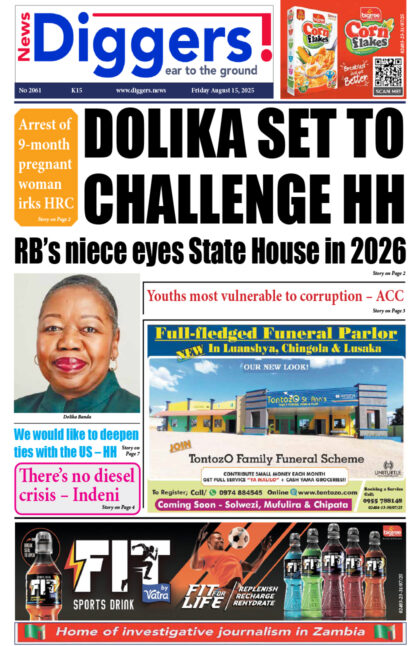I was reading an article this morning in one of the newspapers where Chief Government Spokesperson, Honourable Cornelius Mweetwa announced to the nation that the state of National Disaster and Emergency has been extended owing to the current dry spell. The hopes of Zambians were for a more favourable rain season, compared to the last year’s which was characterized by the El-Nino weather phenomenon. According to forecasts, most parts of the country are to receive normal to above normal rainfall in 2024 to 2025. The persistence of dry spells, however, particularly this December, has put into question these projections. What will a second consecutive failed rain season mean for the Zambian economy? Do we have the capacity to withstand such successive shocks? How do we adapt to climatic variations and ensure economic growth in spite of them?
Every Zambian can attest to the hardships of 2024. Power generation has been severely disrupted due to depleted water reservoirs for hydro-power generation. In turn businesses all across this country have had to either reduce production or install costly to run diesel powered gensets, with enforced downsizing also widespread. Zambian entrepreneurs who cannot afford alternative energy have been forced to cease operations, with the effect of lost incomes reverberating across many households in this country. Furthermore, the drought created a severe humanitarian crisis with roughly 10 million Zambians at risk of food insecurity this year. The effect of all is deceleration in our economic growth. Initial forecasts placed economic growth at 2.7% in 2024, from 5.4% in 2023. The projection was revised downwards further to 1.7%. As the economy slows, so does job and income growth, consumption and Government revenue amongst many other economic ills. Zambians will experience this as difficulty in affording every day commodities, loss of employment and overall diminished living standards.
What is thus the long-term solution, given increasing incidence and frequency of climate change effects? I will begin by posing a question, a question I have asked myself many times. When did we hear that the lack of rain in the USA or somewhere in Europe pushed their economies to the brink of recession. China even? Closer to home, our more industrialized African peers such as South Africa, Nigeria, Egypt. When last were reports made that a failed rain season in any of these nations wiped out nearly all power generation capacity. Kenya, experienced 5-6 failed rain seasons between 2020 and 2023. I do not recall reading much about this substantially affecting their economy. How do dessert countries survive where there is practically no rain? Egypt, Botswana, Namibia, all of whose economies dwarf that of our own. What am I driving at? Our economy is too reliant on natural weather patterns. There are ways to navigate around reduced rainfall. Only countries that have lagged behind farming and energy innovations continue to be as vulnerable as we are.
As much as we may not want to admit it, reduced rain may become the norm. Does that mean every time it occurs, half our population goes hungry? Does it mean, we cannot generate any electricity and run our economies? I remember reading an article where a climate expert indicated that the El-Nino phenomenon will be occurring every 2 to 7 years. Therefore, we can assume after 3-4 years we are likely to experience this. Will we be declaring a state of emergency and national disaster every 3 years? Effectively rendering us a basket case of an economy. Is this even feasible? That to me sounds like a very basic, archaic economy. Even thousands of years ago, the Bible tells us how the Egyptian society navigated a 7-year drought. We are better than that. Climate change is not our making but we are not victims. We can surmount climate change. We can thrive amidst droughts, floods and the cacophony of climate change effects.
In conclusion, even prayer will not solve this problem. Climate change is a product of mankind. Its solution will most improbably also come from man. Granted in Africa we contribute the least to carbon emissions but we are amongst the most heavily affected. The Developed world therefore owes it to us to do more in aiding our adaptation efforts. We leave this to the United Nations Framework Convention on Climate Change. Irrespective of this, and without absolving our own responsibility, whether we learn to withstand these shocks will not be up to the developed world. It will be up to us. Let us therefore, take our destiny into our own hands. Let us rise above drought and its various effects, towards an economy that irrespective of abundant or inadequate rain, thrives.
The Author, Michelo Maunga, is an Economist
























